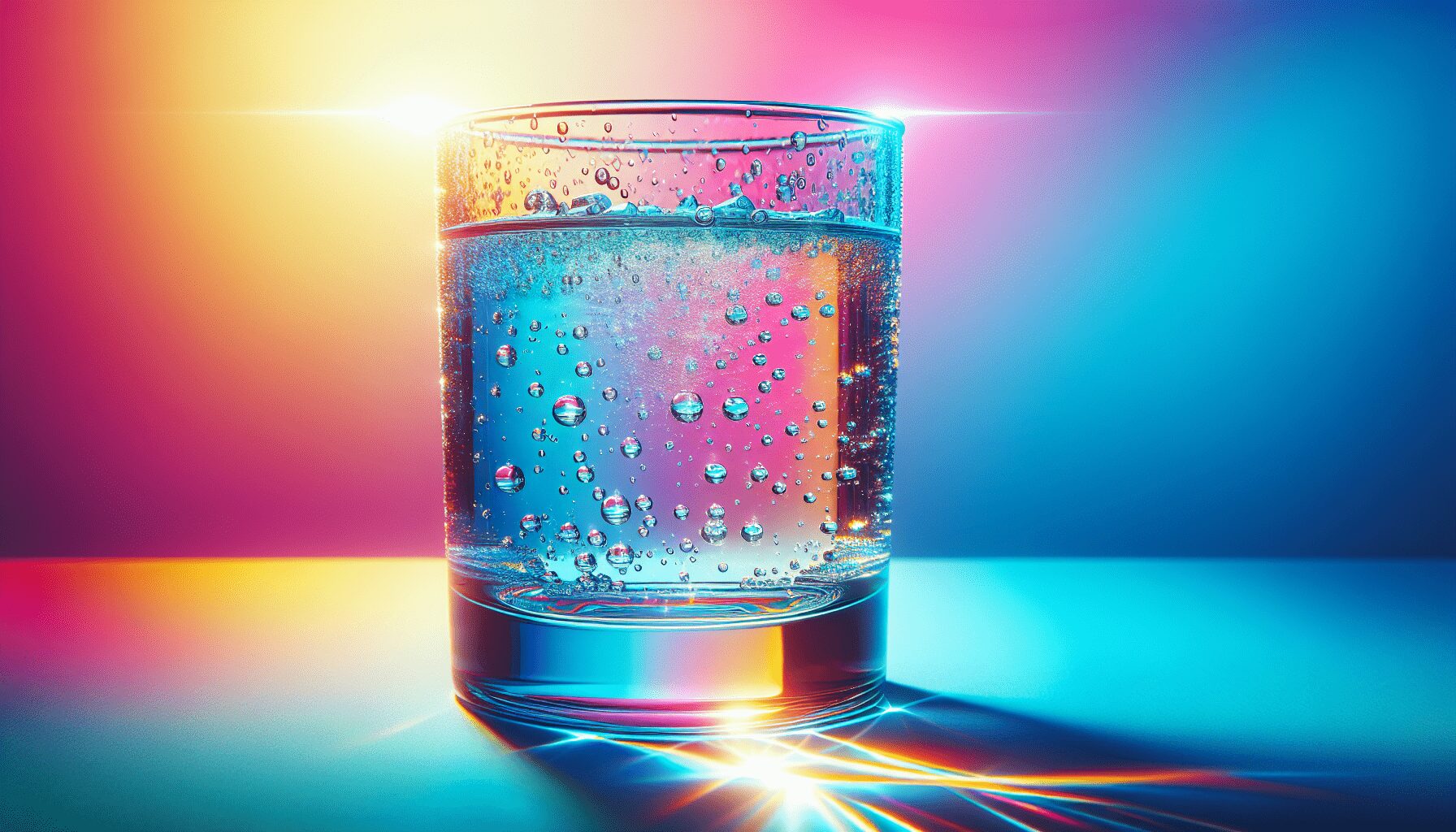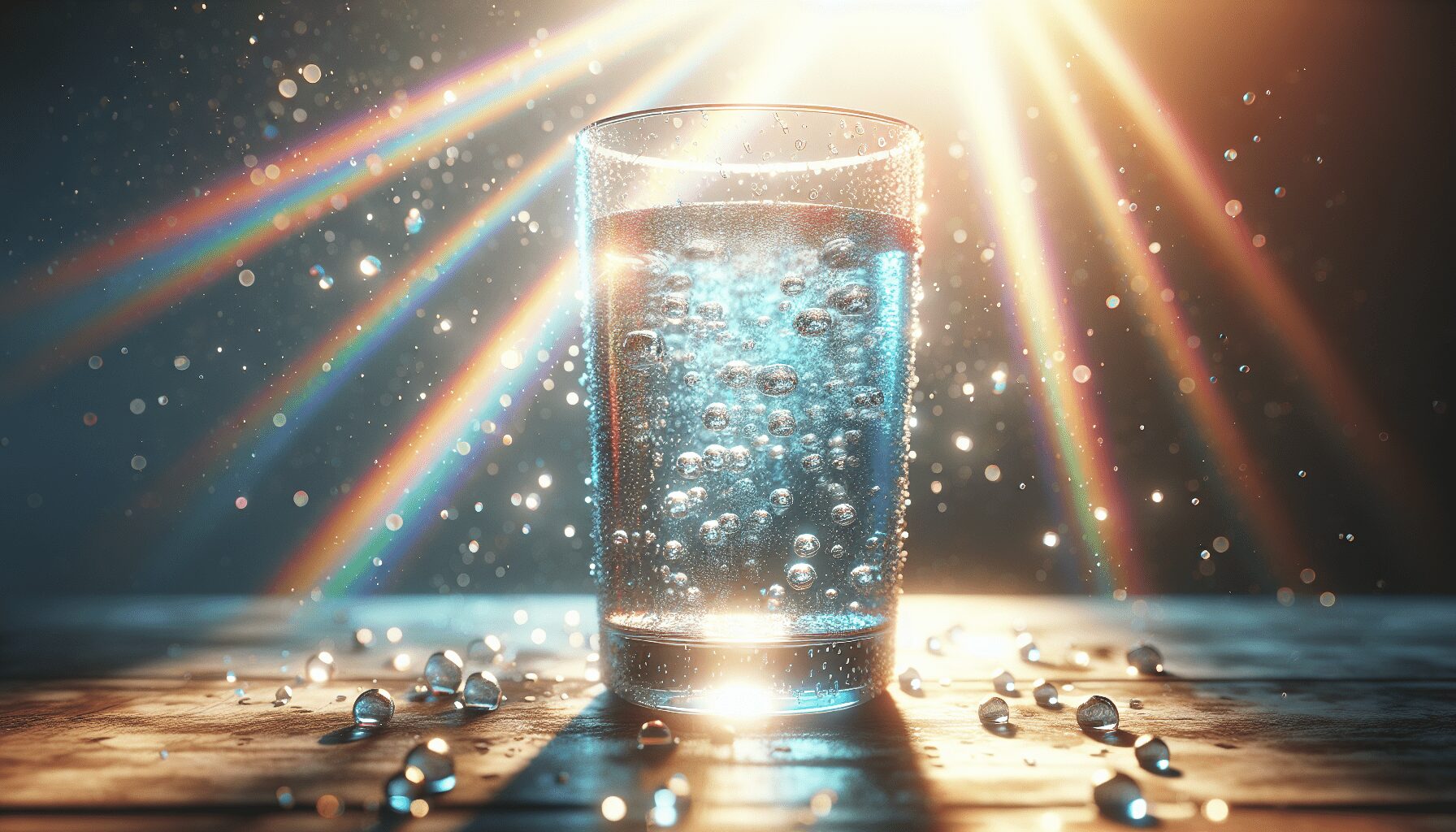The Importance of Staying Hydrated

Did you know that staying hydrated is crucial for maintaining overall health and well-being?
In this article, you will discover the importance of staying hydrated and learn some practical tips on how to keep your body properly hydrated throughout the day. From understanding the benefits of hydration to incorporating simple habits into your daily routine, this guide will help you prioritize hydration and ensure that you stay feeling refreshed and energized.
So, grab a glass of water and let’s dive into the importance of staying hydrated!
Importance Of Hydration
Staying hydrated is crucial for maintaining good health and overall well-being. Water is essential for various bodily functions, and adequate hydration has a multitude of benefits for the body. By understanding the importance of hydration, you can prioritize drinking enough water and make it a crucial part of your daily routine.
Benefits of Staying Hydrated
There are numerous benefits to staying hydrated. Water plays a vital role in maintaining the balance of body fluids, aiding in the transport of nutrients, regulating body temperature, and supporting digestion.
By staying hydrated, you can:
1. Increase energy levels
Dehydration can lead to feelings of fatigue and low energy. When you drink enough water, you provide your body with the hydration it needs to function optimally, leading to increased energy levels and improved productivity.
2. Promote healthy digestion
Water helps in breaking down food and absorbing nutrients, contributing to healthy digestion. By staying hydrated, you can prevent issues such as constipation and promote regular bowel movements.
3. Support cardiovascular health
Adequate hydration is essential for maintaining a healthy cardiovascular system. Water helps in maintaining proper blood volume, enabling oxygen and nutrients to be efficiently transported throughout the body.
4. Enhance physical performance
Staying hydrated can improve your athletic performance by preventing muscle fatigue, cramps, and reducing the risk of overheating during exercise. By keeping your body properly hydrated, you can perform at your best.
5. Boost cognitive function
The brain requires water to function optimally. When you are dehydrated, it can negatively impact your mood, concentration, and overall cognitive function. By staying hydrated, you can improve focus, mental clarity, and prevent cognitive decline.
Signs of Dehydration
Recognizing the signs of dehydration is essential as it allows you to take timely action to rehydrate your body.
The common signs of dehydration include:
1. Thirst
Feeling thirsty is one of the most basic indicators that your body needs more water. Pay attention to your body’s signals and drink water when you feel thirsty.
2. Dry mouth and lips
Dryness in the mouth and lips is a visible sign that you may be dehydrated. It is essential to keep your mouth moist to support proper oral health.
3. Dark-colored urine
The color of urine is a significant indicator of hydration levels. Dark urine suggests that you are not adequately hydrated, and your body requires more fluids.
4. Fatigue and dizziness
Dehydration can cause feelings of fatigue, dizziness, and lightheadedness. If you notice these symptoms, it may be a signal that you need to increase your water intake.
5. Headaches
Headaches are a common symptom of dehydration. By ensuring you are properly hydrated, you can reduce the frequency and intensity of headaches.
Effect of dehydration on the body
Dehydration can have a significant impact on the body’s overall function and health.
When you do not consume enough water to replace what you lose through daily activities, your body can experience various negative effects, such as:
1. Impaired physical performance
Dehydration can lead to decreased endurance, reduced strength, and muscle cramps during physical activity. It can hinder your ability to perform at your best and potentially increase the risk of injuries.
2. Higher risk of heat-related illnesses
When your body lacks sufficient fluids, it becomes more susceptible to heat-related illnesses such as heat stroke and heat exhaustion. These conditions can be severe and require immediate medical attention.
3. Impaired cognitive function
Dehydration can impact your brain’s function, leading to poor concentration, memory problems, and reduced overall cognitive abilities. By staying hydrated, you can ensure your brain operates optimally.
4. Digestive issues
Insufficient hydration can lead to constipation and digestive problems. Water plays a crucial role in softening stools and facilitating smooth bowel movements. By staying hydrated, you can promote a healthy digestive system.
5. Compromised skin health
Lack of hydration can result in dry, tight, and flaky skin. It can also contribute to the formation of wrinkles and make the skin look dull and aged. By maintaining proper hydration levels, you can support healthy and vibrant skin.
Factors Affecting Hydration

Several factors can influence the level of hydration your body requires. Understanding these factors can help you determine your specific hydration needs and adjust them accordingly.
Climate
The climate you live in or the weather conditions you are exposed to can significantly impact your hydration requirements. In hot and humid climates, you are more likely to sweat profusely, causing your body to lose more fluids. It is crucial to increase your water intake in such conditions to compensate for the increased fluid loss.
Physical Activity
Engaging in physical activity, especially intense exercise, can lead to excessive sweat and fluid loss. When you exercise, your body’s temperature rises, causing you to sweat in an attempt to cool down. It is vital to hydrate adequately before, during, and after physical activity to prevent dehydration and maintain optimal performance.
Age and Gender
Age and gender can also influence hydration needs. Children and older adults may have increased hydration requirements due to their higher susceptibility to dehydration. Pregnant and breastfeeding women also need to pay extra attention to their fluid intake as they require more water to support the growth and development of their bodies and their babies.
Medical conditions
Certain medical conditions can affect fluid balance in the body, requiring increased attention to hydration. Conditions such as diabetes and kidney disease may impact the body’s ability to regulate water levels. Additionally, individuals with a fever, vomiting, or diarrhea need to replenish fluids more frequently to prevent dehydration.
Recommended Daily Water Intake
The recommended daily water intake varies depending on factors such as age, sex, climate, and physical activity level. While general guidelines can provide a starting point, it is essential to consider individual needs and adjust hydration accordingly.
General Guidelines
A commonly recommended guideline for daily water intake is to consume at least 8 cups or 64 ounces (about 2 liters) of water per day. This guideline serves as a basic recommendation for the average adult in a moderate climate who engages in light physical activity. However, individual water needs may vary significantly.
Variations Based on Factors
Several factors, such as climate, physical activity level, and age, can influence your water requirements. In hotter climates or during intense exercise, you may need to increase your water intake to compensate for the additional fluid loss. Older adults may also need to consume more water to support healthy aging and prevent dehydration.
Hydration for Athletes
Athletes and individuals engaging in high-intensity workouts have increased fluid requirements due to higher sweat rates and increased physical exertion. It is recommended to hydrate before, during, and after exercise to maintain optimal performance and prevent dehydration. Drinking water or sports drinks that contain electrolytes can help replace both fluids and essential minerals lost during exercise.
Ways to Stay hydrated
Maintaining proper hydration should be a priority in your daily routine.
Here are some effective strategies to help you stay hydrated throughout your day:
Regular Water Intake
The most fundamental way to stay hydrated is by regularly drinking water throughout the day. Carry a refillable water bottle with you and make it a habit to take sips frequently. Aim to drink water before you feel thirsty to prevent dehydration.
Hydrating Foods and Beverages
In addition to drinking water, you can also increase your hydration through the consumption of hydrating foods and beverages. Foods such as watermelon, cucumbers, oranges, and lettuce have high water content and can contribute to your overall fluid intake. Additionally, consuming herbal teas, fruit-infused water, and soups can also hydrate your body.
Avoiding Excessive Alcohol and Caffeine
While it is okay to enjoy a cup of coffee or a glass of wine in moderation, excessive alcohol and caffeine intake can dehydrate the body. These beverages act as diuretics, increasing urine production and water loss. It is essential to balance your consumption of these drinks and ensure a sufficient intake of water to offset their effects.
Using Hydration Trackers
Using hydration trackers can be a helpful tool to monitor your water intake. Many mobile apps and wearable devices offer features that track your daily fluid consumption and remind you to drink water at regular intervals. These trackers can provide a visual representation of your progress and help you meet your hydration goals.

Benefits of Water for the Body
Water is often referred to as the elixir of life, and for good reason. It plays a vital role in maintaining various bodily functions and supports overall health and well-being.
Here are some key benefits of water for the body:
Regulation of Body Temperature
Water helps regulate body temperature by enabling sweating, which cools the body down during periods of elevated heat. Sweating is a natural cooling mechanism that allows excess heat to dissipate from the body, helping to prevent overheating.
Transportation of Nutrients
Water plays a crucial role in the transportation of nutrients throughout the body. It helps dissolve and carry vitamins, minerals, and other essential substances to cells and organs. Proper hydration ensures that the body’s cells receive the necessary nutrients for optimal function.
Enhancement of Physical Performance
Staying hydrated has a direct impact on physical performance. When you maintain proper hydration levels, your muscles and joints remain lubricated, reducing the risk of cramps, sprains, and strains. Additionally, adequate hydration supports cardiovascular function, allowing for improved endurance and performance during exercise.
Detoxification
Water is a vital component in the body’s detoxification process. It helps flush out waste products and toxins through urine and sweat. By staying hydrated, you support your body’s natural detoxification mechanisms, promoting overall health and well-being.
Hydration and cognitive function
Proper hydration is essential for optimal cognitive function.
Here’s how staying hydrated can positively impact your mental clarity, focus, and long-term cognitive health:
Impact of Dehydration on the Brain
Dehydration can have a significant impact on the brain’s function. Studies have shown that even mild dehydration can lead to cognitive impairments, including reduced attention, concentration, and memory. When you are dehydrated, your brain cells shrink, making it challenging for them to communicate effectively.
Improved Focus and Mental Clarity
By maintaining proper hydration, you can enhance your focus and mental clarity. Drinking enough water ensures that your brain cells can function optimally, allowing you to concentrate better, think more clearly, and make sound decisions.
Prevention of Cognitive Decline
Chronic dehydration can have long-term effects on cognitive health. It has been linked to an increased risk of cognitive decline and neurological disorders such as Alzheimer’s disease. By prioritizing hydration, you can potentially reduce the risk of cognitive decline and support long-term brain health.
Hydration for Skin Health
Proper hydration is essential for maintaining healthy and youthful-looking skin.
Here’s how staying hydrated can benefit your skin:
Role of Water in Maintaining Skin Health
Water is crucial for maintaining the overall health and function of the skin. It helps to keep the skin hydrated from within, giving it a plump and vibrant appearance. Water also assists in maintaining the skin’s natural moisture barrier, protecting it from dryness and external irritants.
Prevention of Dryness and Wrinkles
When your body is adequately hydrated, your skin is less prone to dryness, flaking, and the formation of wrinkles. Dehydration can cause the skin to lose its elasticity, leading to the development of fine lines and wrinkles. By staying hydrated, you can promote soft, supple, and youthful-looking skin.
Hydration for Youthful Appearance
Proper hydration plays a crucial role in maintaining a youthful appearance. When your skin is well-hydrated, it appears plumper and has a natural glow. Additionally, hydrated skin is more resilient and better able to withstand environmental stressors, such as sun exposure and pollution.
Importance of Hydration During Exercise
Hydration is particularly important during exercise to support optimal performance, prevent fatigue, and reduce the risk of heat-related illnesses.
Here’s why staying hydrated during workouts is essential:
Effects of Dehydration on Exercise Performance
Dehydration can have a significant impact on exercise performance. When you are dehydrated, your blood volume decreases, making it harder for your heart to pump oxygen and nutrients to your muscles. This can lead to decreased endurance, reduced strength, and an increased risk of muscle cramps and overheating.
Fluid Replacement During Workouts
To maintain hydration during exercise, it is recommended to drink fluids before, during, and after your workout. The American College of Sports Medicine suggests consuming approximately 16-20 ounces of water or a sports drink 2-3 hours before exercise and an additional 8-10 ounces 10-20 minutes before starting. During exercise, aim to drink 7-10 ounces every 10-20 minutes, especially in intense or prolonged workouts.
Preventing Heat-Related Illnesses
Staying properly hydrated during exercise also helps prevent heat-related illnesses such as heat stroke and heat exhaustion. When your body lacks sufficient fluids, it becomes more susceptible to overheating, leading to potentially life-threatening conditions. By hydrating adequately, you can help regulate body temperature and reduce the risk of heat-related illnesses.
Hydration and Digestive Health
Proper hydration is crucial for maintaining a healthy digestive system.
Here’s how staying hydrated can benefit your digestive health:
Prevention of Constipation
Hydration plays a vital role in preventing constipation and promoting regular bowel movements. When you are dehydrated, the colon absorbs more water from the stool, resulting in harder and drier stools. By staying hydrated, you can soften the stool, making it easier to pass and preventing constipation.
Aid in Digestion
Water is essential for the digestion and absorption of food. It helps break down food particles, allowing the body to extract and absorb nutrients efficiently. Adequate hydration ensures that the digestive system functions smoothly, preventing issues such as indigestion and bloating.
Hydration for a Healthy Gut
Proper hydration also supports a healthy gut microbiome. The gut microbiome consists of trillions of bacteria that play a crucial role in digestion and overall health. By staying hydrated, you can promote a healthy balance of gut bacteria, supporting optimal digestive function.
Tips for Staying Hydrated
Here are some practical tips to help you stay hydrated throughout the day:
Carrying a Water Bottle
Carry a reusable water bottle with you wherever you go. Having easy access to water will remind you to drink regularly and make it convenient to satisfy your hydration needs.
Setting Reminders
Set reminders on your phone or use hydration tracking apps to remind yourself to drink water at regular intervals. These reminders can help you establish a hydration routine and prevent forgetting to drink water.
Adding Flavor to Water
If you find plain water boring, try adding natural flavors such as lemon, cucumber, or mint to enhance the taste. This can make drinking water more enjoyable and encourage you to drink more.
Monitoring Urine Color
A simple way to gauge your hydration levels is by monitoring the color of your urine. Aim for a pale, straw-like color, which indicates that you are adequately hydrated. If your urine is dark in color, it’s a sign that you may need to increase your water intake.
By prioritizing hydration and incorporating these tips into your daily routine, you can ensure that your body receives the water it needs to support optimal health and well-being.
Remember that staying hydrated
is a simple yet powerful way to take care
of yourself and enjoy the countless benefits
of water for your body, mind, and skin.
Share:
Related Posts

Avocado & Chickpea Toast
Try this delicious and protein-packed avocado and chickpea toast—perfect for a quick, healthy breakfast or snack. Loaded with fiber, flavor, and plant-based goodness.

No More Flabby Arms: Effective Triceps Workouts for Women
Say goodbye to flabby arms with these targeted triceps workouts for women. Strengthen, tone, and sculpt your arms with exercises designed to deliver visible results.

Enchilada Skillet
This one-pan Enchilada Skillet is a quick, hearty, and flavorful twist on traditional enchiladas—ready in just 30 minutes! Packed with protein, veggies, and bold spices, it’s a perfect weeknight dinner.

Sweat-Proof Makeup for Active Women
Discover the ultimate guide to sweat-proof makeup for active women. Learn the best products, tips, and routines to keep your makeup fresh through any workout.






